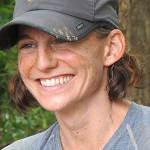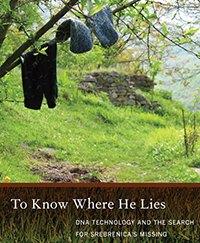
Before the breakup of Yugoslavia in 1992, Bosnia was historically a multiethnic region of mostly Christian Orthodox Serbs, Muslim Bosniaks and Roman Catholic Croats. After the breakup, Serbian nationalists living in Bosnia implemented a period of ethnic cleansing against nonSerbian Bosnians. In the town of Srebrenica, about 8,000 Bosnian Muslim males were massacred and their bodies dumped into mass graves.
This genocide, carried out between 1992 and 1995, displaced nearly a quarter of Bosnia’s pre-war population, with refugees scattered throughout the world. Nearly 70,000 have settled in St. Louis, making the city the largest Bosnian community outside Bosnia.
It will be especially significant to the Bosnian community that Washington University in St. Louis’ annual Holocaust Memorial Lecture will feature anthropologist Sarah Wagner, PhD. She will speak on “Srebrenica’s Legacies of Loss and Remembrance” at 6 p.m. Tuesday, Nov. 5, in Umrath Hall Lounge. This lecture, part of the Assembly Series, is free and open to the public.
In addition to her lecture, Wagner will be part of a roundtable discussion, titled “Srebenica in the Aftermath of Genocide,” at 5 p.m. Wednesday, Nov. 6, in the Danforth University Center, Room 248.
Joining Wagner are Elvir Ahmetovic and Mersida Muratovic-Planic, members of the Bosnian community; Patrick McCarthy, author of After the Fall: Srebrenica Survivors in St. Louis; Benjamin Moore, founder of the Bosnia Memory Project; and, from WUSTL, Leila Nadya Sadat, JD, the Henry H. Oberschelp Professor of Law and director of the Whitney R. Harris World Law Institute; and Tabea Linhard, PhD, associate professor and director of graduate studies in Spanish in the Department of Romance Languages and Literatures in Arts & Sciences.

In her book, To Know Where He Lies: DNA Technology and the Search for Srebrenica’s Missing, Wagner tells the story of the 1995 massacre in Srebrenica. Loved ones had little hope of identifying physical remains until the advent of DNA technology that has helped identify more than 6,000 victims. Their remains are now interred in a memorial site that marks the worst atrocity in European history since World War II.
Wagner is an assistant professor of anthropology at George Washington University. Previously, she taught at the University of North Carolina at Greensboro and at Harvard University.
Her next book, Srebrenica in the Aftermath of Genocide, co-authored with Lara Nettelfield, is expected to be published in 2014.
For information on Assembly Series programs, visit assemblyseries.wustl.edu or call (314) 935-4620.